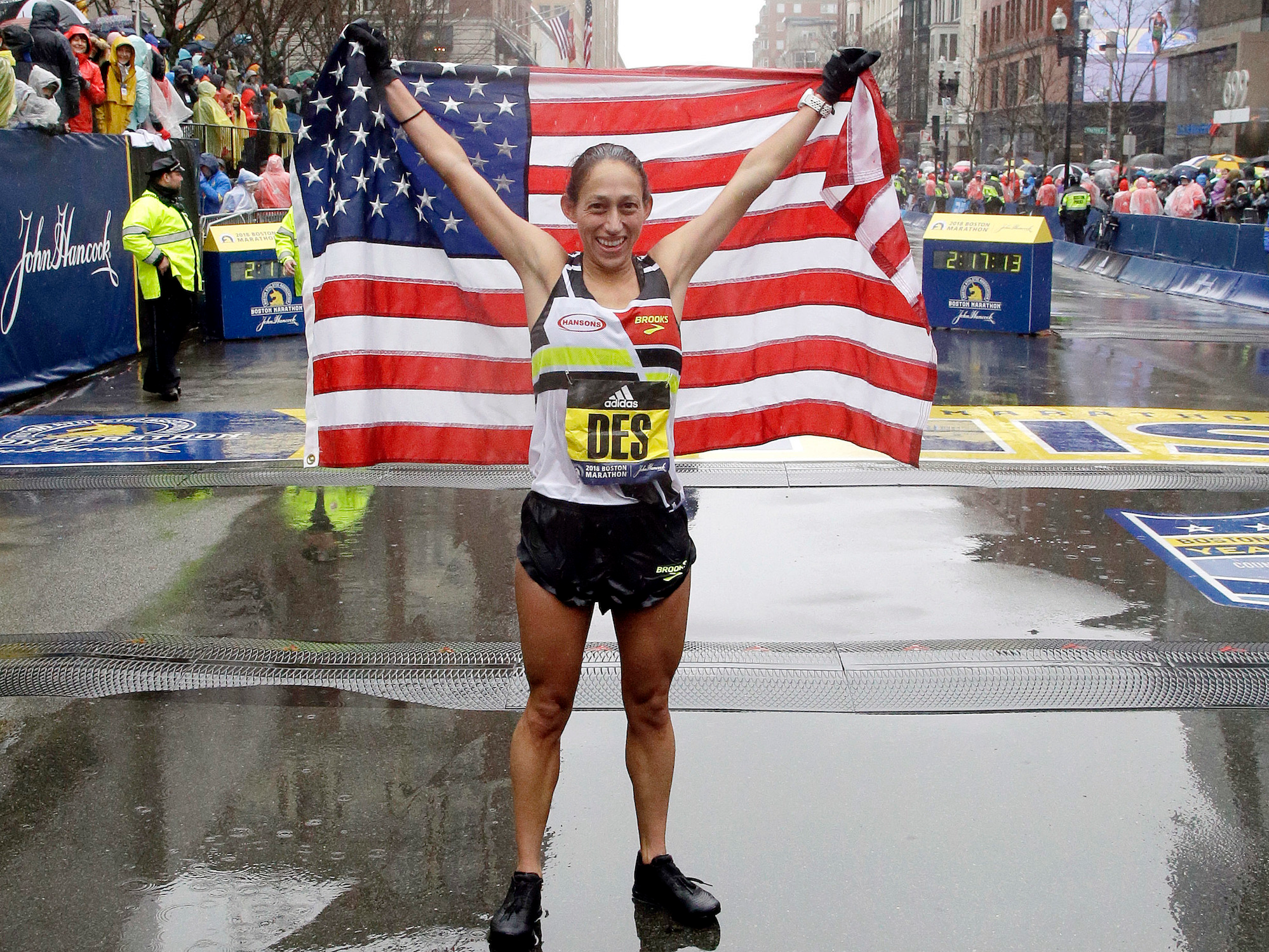- Boston Marathon champion Des Linden is the first American woman to win the event since 1985.
- Linden shared some tips on how to run a marathon successfully with Business Insider.
- The marathon is a grueling event, but Linden’s advice can help you make the most of your training – not to mention succeed on the day of the big race.
Boston Marathon champion Des Linden made history. The professional runner is the first American woman to win the Boston Marathon since 1985.
She also previously represented the US at the 2012 London Olympics and the 2016 Rio Olympics.
During an interview with Business Insider last year, Linden said that she thought the event was “insane” when she first became involved in the world of running. But, since joining the Hansons-Brooks Original Distance Project, she’s established herself as a dominant figure in marathon running.
The event is no walk in the park. It’s ancient origin story involves a soldier named Pheidippides dropping dead after running 26.2 miles in order to report news of the Greeks’ victory in the Battle of Marathon.
But Linden has some tips on how to set yourself up for success in the big race.
Here's Linden's advice on how to run a marathon:
Make sure you've decided to run a marathon for the right reasons
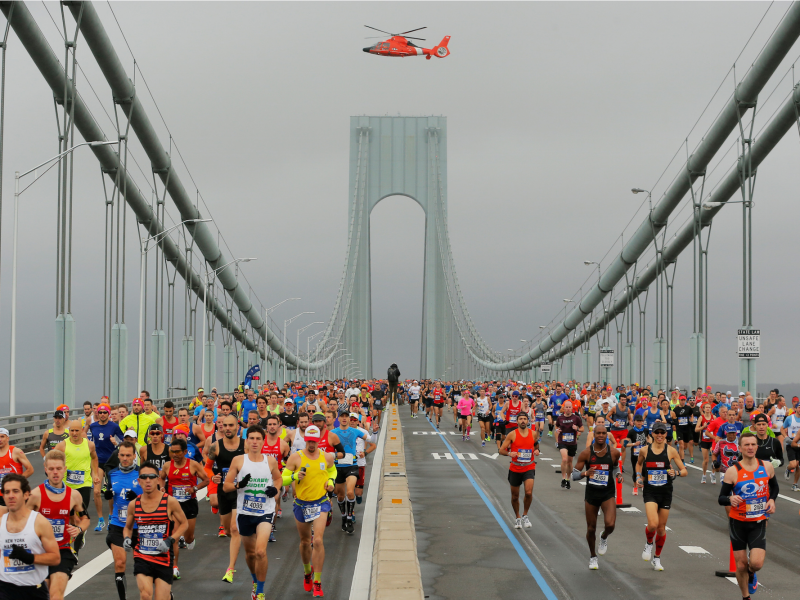
"A lot of first-time runners think, 'Oh, the marathon is sexy,'" Linden said. "It's what you want to put on your bucket list."
She said it's better to test yourself with shorter 5K and 10K races, rather than just throwing yourself into a marathon.
"If you're not really ready for it, you're probably not going to love it," she said. "Give yourself a chance to fall in love with it, and you get that by being patient and slowly building towards it. If you can create a love of the process, then you can run for your entire life, which is pretty incredible."
Take the plunge and sign up
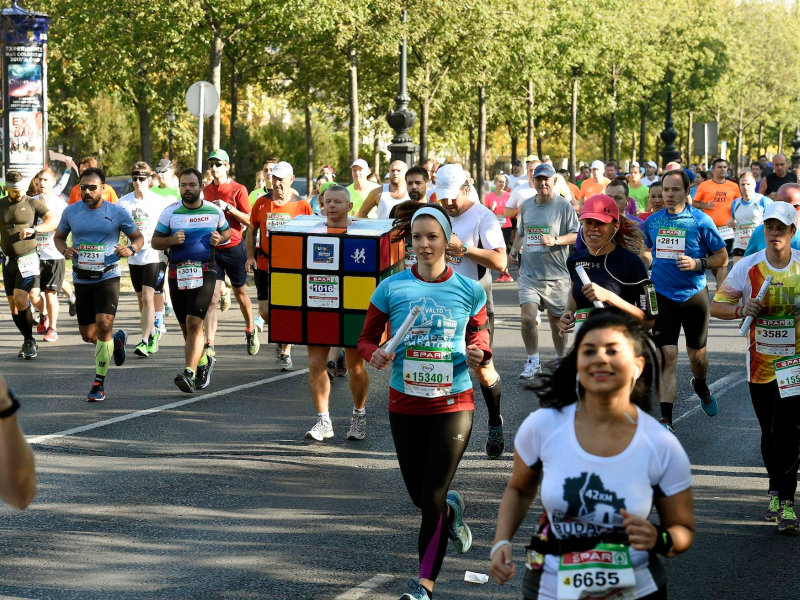
For runners who've yet to conquer the marathon, Linden said that just signing up can be a huge motivator.
Signing up - and putting your money down for a race - will establish your commitment and heighten your resolve.
Get the right shoes
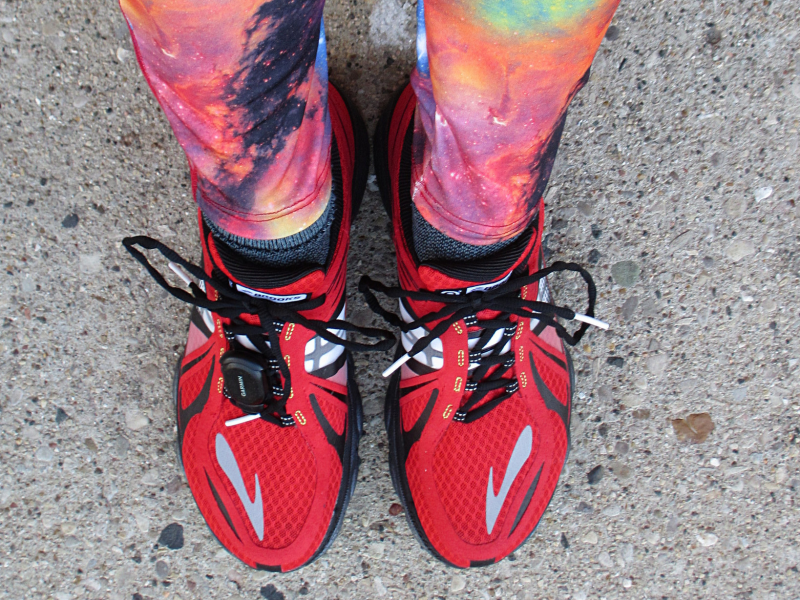
Linden said you should never "just pick a shoe because it looks cool or because the price is right or it's what's there in front of you."
Instead, she recommended heading to a store that specializes in running shoes, especially if you need help picking one that's right for you.
As a member of the Hansons-Brooks Original Distance Project, Linden said she wears Hansons-Brooks shoes.
Stay present in the moment when you're training
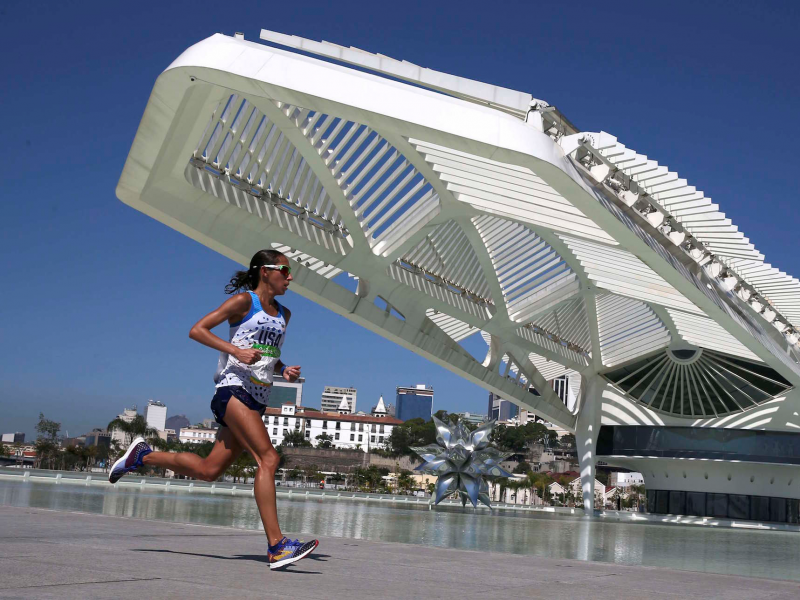
Don't psych yourself out when you're training.
"Once you get out the door, it's like, 'Okay, just enjoy this step and this mile and this moment,'" Linden said. "People tend to think about how much they have left or put a negative spin on it. Just being present in that moment is always really helpful."
But don't overdo it
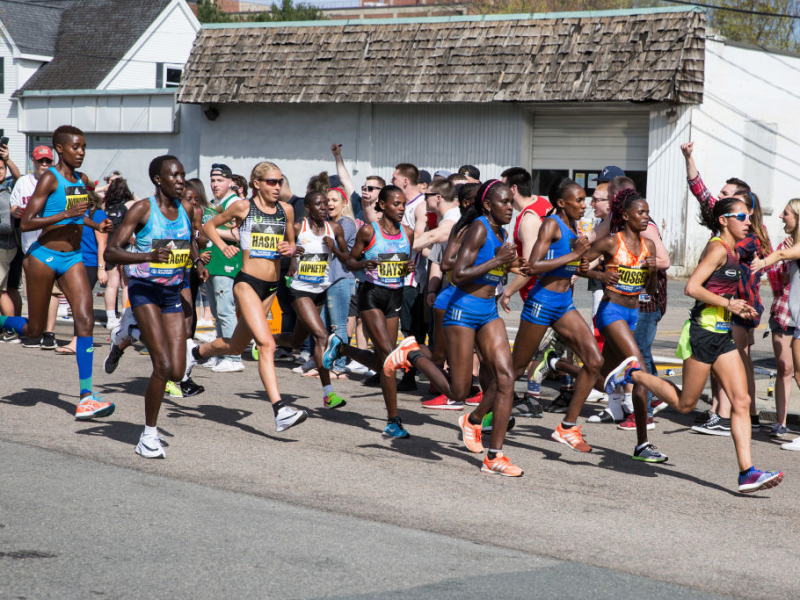
You want to be consistent about your training. Linden said that training too hard or upping your mileage too quickly can spell disaster for a marathon runner.
"The last thing you want to do is get eight or ten weeks in and get an injury," Linden said.
Fuel up right with healthy foods

Eating enough calories is crucial for any long-distance runner.
"If the choice is something not fantastic, or nothing at all, I'm going to eat whatever's available," Linden said.
Still, marathon runners and prospective marathon runners should "make good decisions when you're filling your fridge and cupboards," according to Linden.
The long-distance runner said she generally avoids processed food in "bags and boxes" and sticks with fresh, whole foods, when she can.
And then, in the days before a marathon, Linden pares down her diet to "simple carbs" like white rice to avoid getting an upset stomach on race day.
Get lots of sleep to help your body recover

"Sleep is the easiest way to recover," Linden said. "The best recovery tool you have is your bed. Just get sleep. That will allow your body to repair and be ready for the next day."
And the science backs her up.
A 2017 paper from the Saint Louis University School of Medicine found that, "Poor sleep not only puts athletes at risk for injury, but plays a vital role in recovery from injuries adn procedures."
Right before the big race, take a deep breath and relax
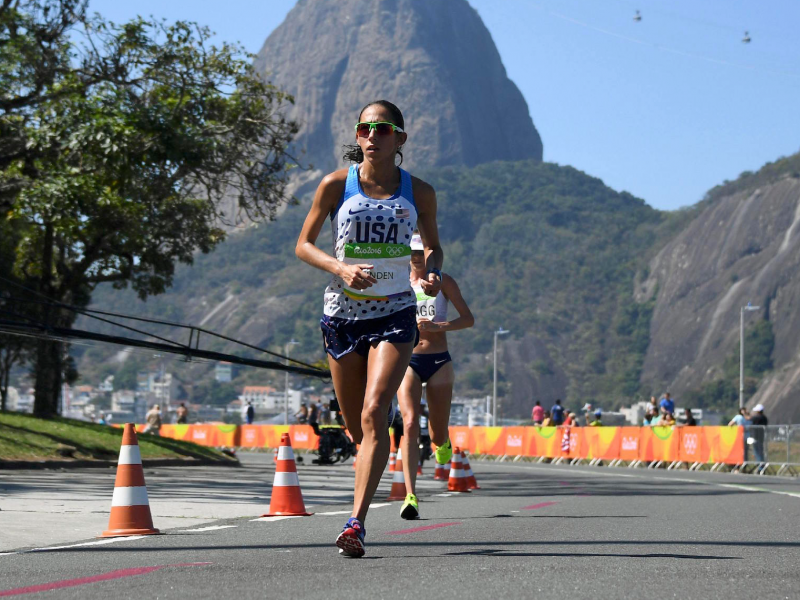
On the day of the race, Linden said she tries not to get overwhelmed from all the anticipation.
"There's an excitement when you're at the start because you have this whole big thing in front of you, and all these possibilities," Linden said. "You kind of have to rein in all those mental things going on and just be very relaxed and focused."
Never kid yourself — running a marathon is hard work
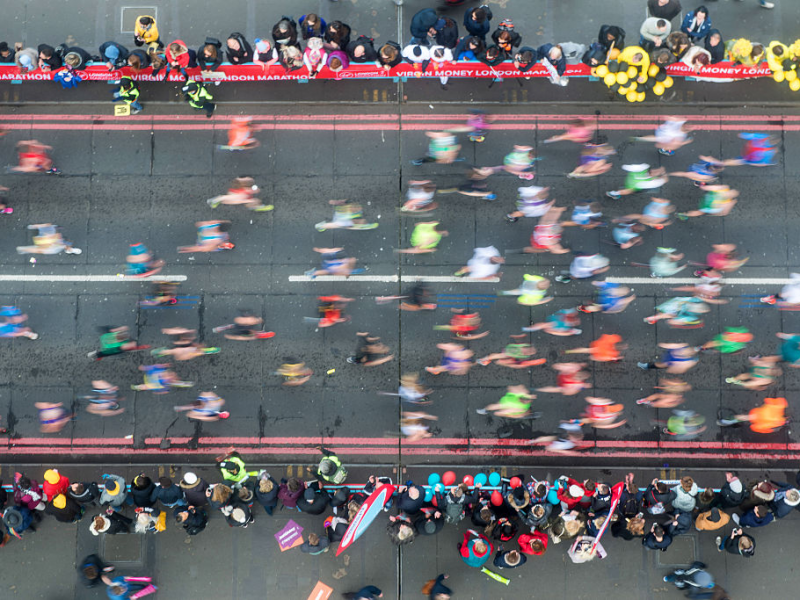
"No matter what, it's going to be hard," Linden said. "Don't confuse it getting hard with it being not your day. You should expect it to be hard. It's a hard event. You can still have a really great experience."
Linden said that around the 20th mile of the marathon, she typically starts running with her "heart" instead of her "head."
"If you've done it right, you start to tap into the energy of the crowd and the fans and anywhere you can get it," she said.
When the going gets tough, remember that you're resilient
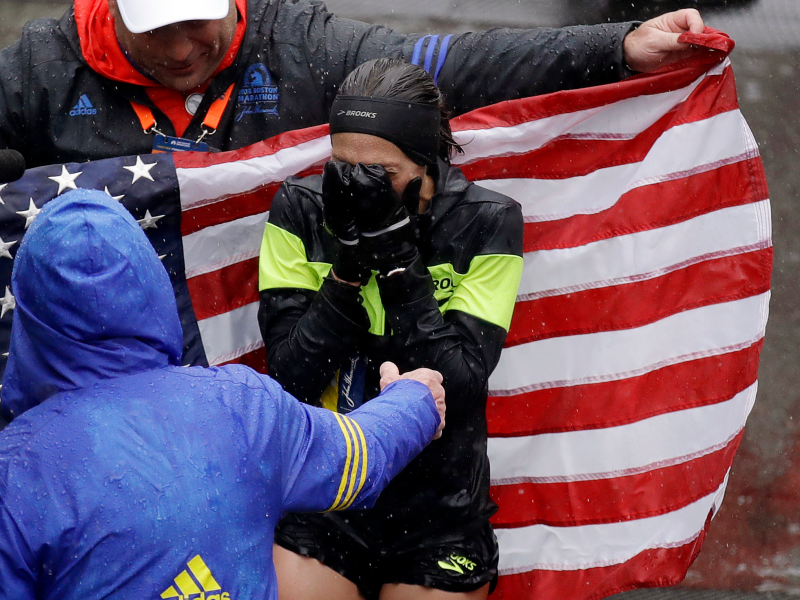
Linden said that many people find out a lot about themselves from running marathons.
"It's usually that you're a lot tougher than you initially thought," the marathon runner said said. "I can bounce back from a lot."
Fall back on your training if you feel yourself flagging
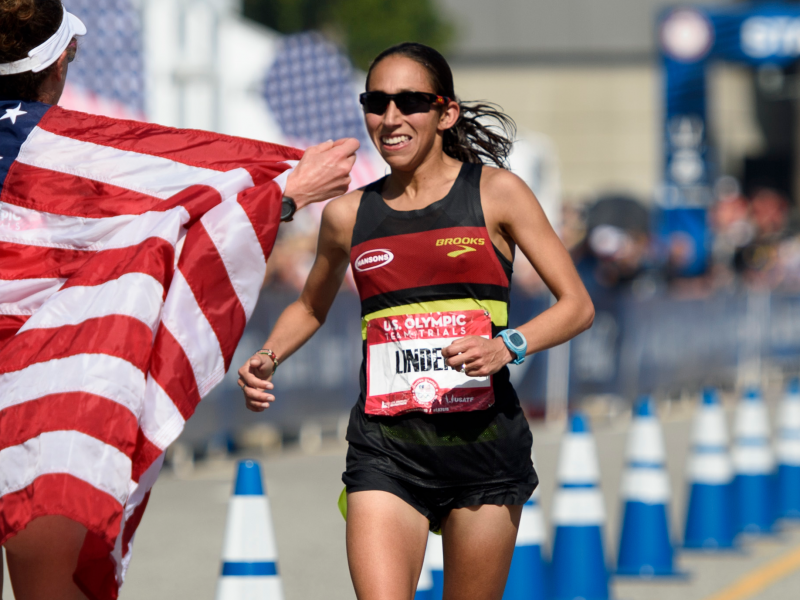
Linden said that training is about acquiring knowledge about how far you can push yourself and then applying that knowledge over 26.2 miles.
"When it starts to get hard, you're like, 'I showed up every day and just went through it and it was fine,'" she said. "And you just keep plugging away."
Once you've crossed the finish line, take time to recover

"Recovery starts as soon as you cross the finish line," Linden said.
She recommended grabbing a power bar, banana, or bagel within three minutes of finishing the race. Most marathon events will have a station where food is being passed out.
Then you should consider giving yourself a well-deserved break. Linden herself doesn't train at all for two weeks following a race. She said that time is a crucial part of helping her get "excited" for whatever is on the horizon.

